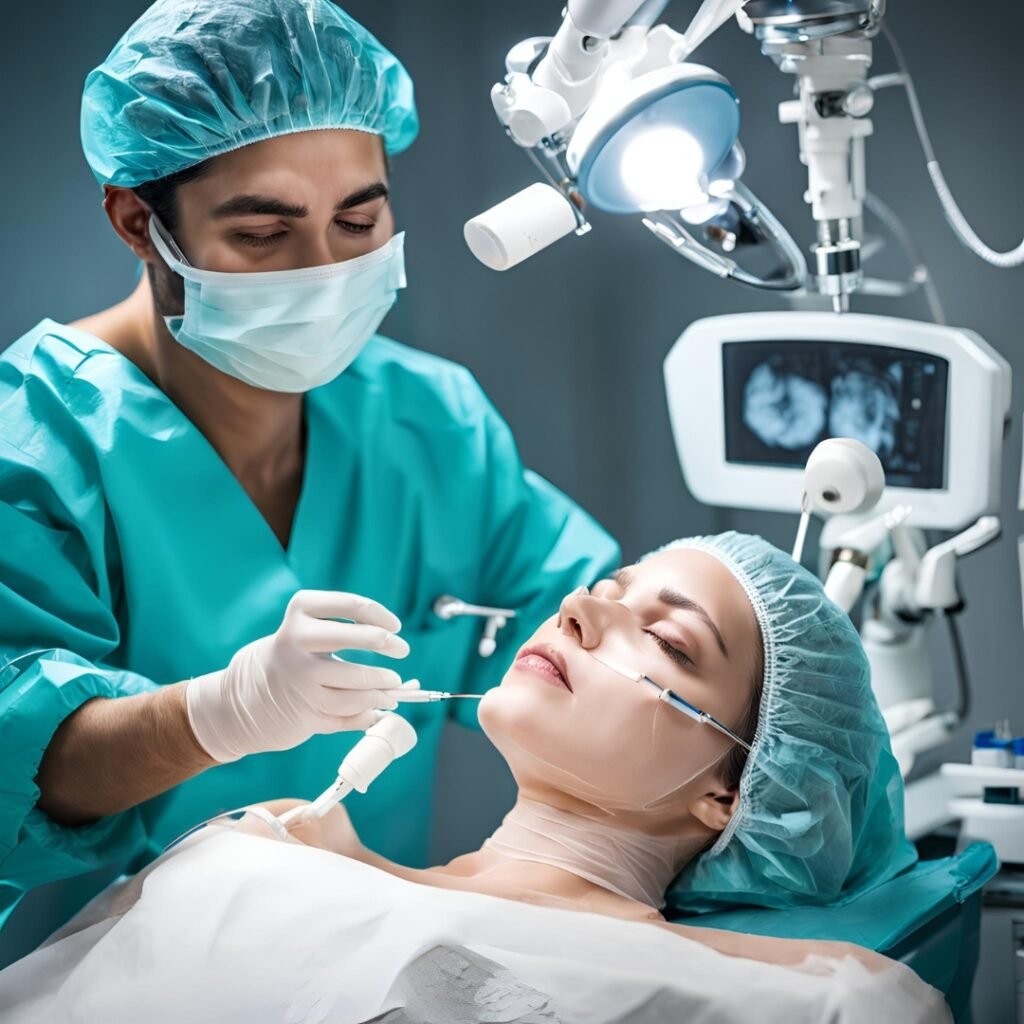Why Sparsh Hospital is your best choice for General & Laparoscopic Surgery?

Sparsh Hospital stands out as a premier choice for general and laparoscopic surgery due to its commitment to excellence, state-of-the-art facilities, and highly skilled surgical team. Our surgeons are renowned for their expertise and dedication to patient care, ensuring optimal outcomes and swift recoveries. We offer personalized treatment plans, cutting-edge technology, and a compassionate approach that prioritizes your health and comfort. Trust Sparsh Hospital for reliable, top-tier surgical care.
Understanding General & Laparoscopic Surgery
General surgery encompasses a wide range of procedures aimed at addressing various medical conditions affecting different body parts. Laparoscopic surgery, a minimally invasive technique, uses small incisions and a camera to perform surgeries with precision. This approach reduces recovery time, minimizes pain, and decreases the risk of complications compared to traditional open surgery. Understanding these surgical methods can help patients make informed decisions about their healthcare options.

Common General & Laparoscopic Surgery Conditions and Treatments
General and laparoscopic surgeries address a variety of conditions, including:
- Appendicitis: Removal of the inflamed appendix through appendectomy.
- Gallbladder Disease: Cholecystectomy to remove the gallbladder, often due to gallstones.
- Hernias: Repair of abdominal hernias to prevent further complications.
- Gastrointestinal Disorders: Treatment of conditions such as diverticulitis and Crohn’s disease.
- Obesity: Bariatric surgery for weight loss management.
These procedures aim to alleviate symptoms, improve quality of life, and prevent further health issues.
Diagnostic Tests in General & Laparoscopic Surgery
Accurate diagnosis is crucial for effective treatment. Common diagnostic tests in general and laparoscopic surgery include:
- Ultrasound: Provides detailed images of internal organs.
- CT Scan: Cross-sectional images for a comprehensive view of the body’s structures.
- MRI: Detailed imaging, particularly useful for soft tissue evaluation.
- Endoscopy: Direct visualization of the gastrointestinal tract.
- Blood Tests: Assess overall health and identify specific conditions.
These tests help in forming an accurate diagnosis and tailoring the most effective treatment plan.
General & Laparoscopic Surgery Treatments
Treatment options in general and laparoscopic surgery vary based on the condition and patient needs:
- Laparoscopic Appendectomy: Minimally invasive removal of the appendix.
- Laparoscopic Cholecystectomy: Gallbladder removal through small incisions.
- Hernia Repair: Reinforcement of weakened abdominal walls using mesh.
- Gastrointestinal Surgeries: Procedures like bowel resection to treat severe GI conditions.
- Bariatric Surgery: Techniques such as gastric bypass to assist in weight loss.
These treatments focus on providing effective relief with minimal disruption to the patient’s life.
Why should I see an General & Laparoscopic Surgery?
Consulting a general and laparoscopic surgeon is essential if you experience symptoms such as severe abdominal pain, unexplained weight loss, or gastrointestinal disturbances. These specialists are equipped to diagnose and treat a wide range of conditions using the latest techniques, ensuring you receive the best possible care. Early consultation can lead to prompt treatment, preventing complications and promoting better health outcomes. Choose a qualified surgeon to guide you through your health journey with expertise and compassion.

